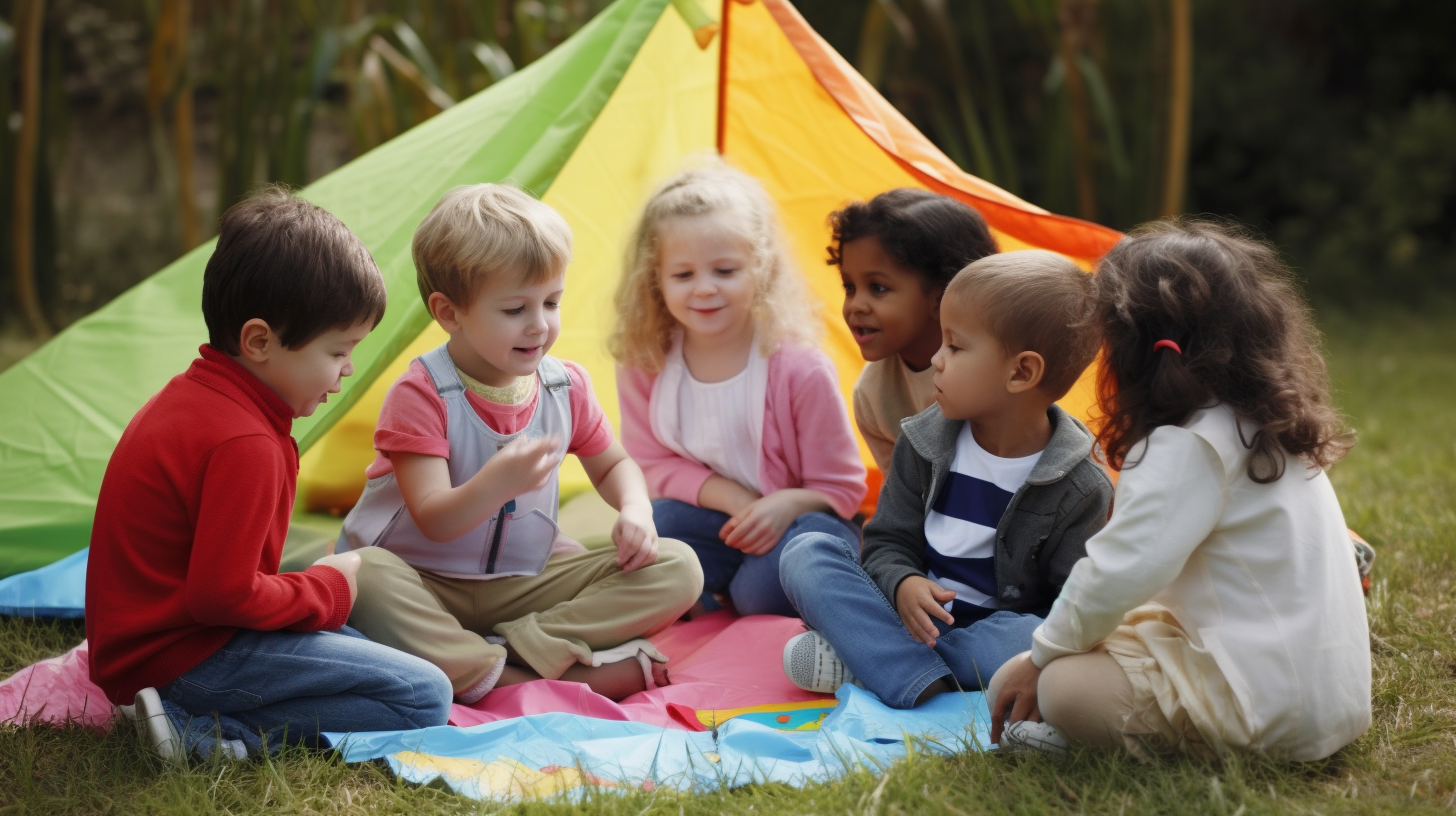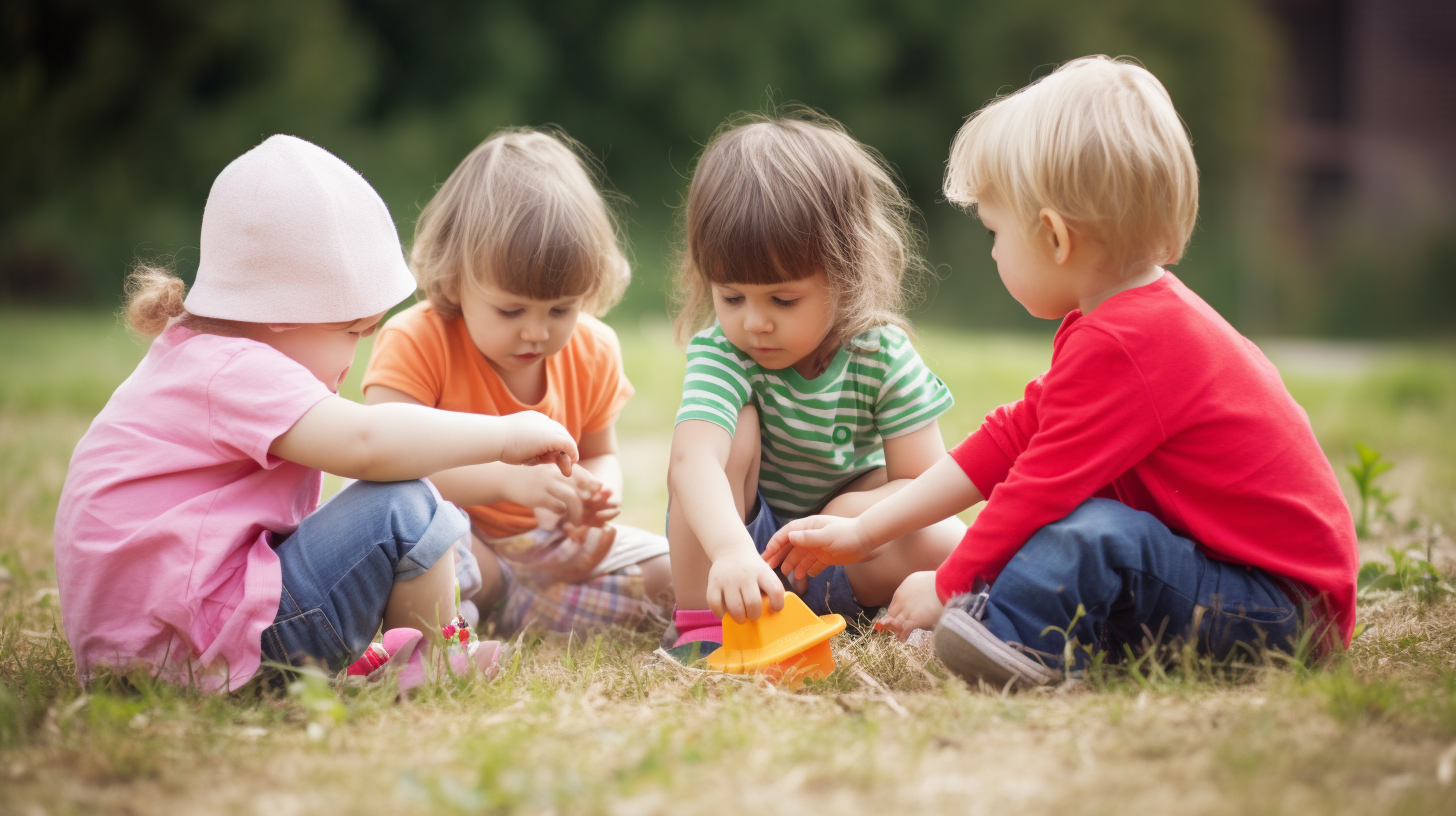Homeschooling has become an increasingly popular option for families in recent years, and its effects on a child’s social life are a major consideration in the decision to do so. Despite the growing prevalence of homeschooling, opinions surrounding its effects on a child’s social skills and interactions are still largely divided. On one hand, some argue that homeschooling deprives a child of opportunities to interact with peers, hone their communication skills, and develop social maturity. On the other hand, advocates point to the potentially greater flexibility and control of the learning environment as well as the opportunity for individualized instruction, which can foster social development. In either case, the effects of homeschooling on a child’s social skills and interactions are highly individual and depend largely on the circumstances of the family and the individual child in question.
Purpose of Exploring Social Skills
Exploring social skills in the context of homeschooling can help parents better understand how their child’s social skills and interactions may be affected by being homeschooled. Doing so can provide insight into how homeschooling may affect the overall development of the child’s social and communication skills. Additionally, parents can use this exploration to assess the child’s social and communication needs and help ensure they are being met while meeting the educational needs of the child. For example, social skills such as conversational skills, problem-solving skills, and cooperative play may be taught and practiced when the child is interacting with others, such as peers or other adults. Additionally, parents can be mindful of providing opportunities for the child to hone these skills outside of the homeschool environment, such as through extracurricular activities, clubs, and sports. Ultimately, exploring social skills can be a helpful tool for parents, helping them to better understand how homeschooling affects their child and how to best support their social and communication development needs.

Benefits of Homeschooling
Homeschooling can have a positive effect on a child’s social skills and interactions. Homeschooling creates plenty of opportunities for homeschooled children to practice and hone their social skills, like learning how to engage in meaningful conversations with peers and adults, manage different types of social situations, and make new friends. Since homeschooling can be highly individualized, it can also help children to meet other children who share similar interests and goals. Another benefit of homeschooling is that the family has more flexibility with learning schedules. This allows for more time to participate in social activities, such as community events, library programs, religious studies, and other extracurricular activities where children can interact with their peers in a safe environment. Finally, the fact that learning takes place within a comfortable home environment can help to reduce anxiety and promote better communication between students and parents. Ultimately, homeschooling can provide children with the necessary skills to become socially confident and engage in constructive conversations with others, which can lead to fulfilling relationships and successful academic outcomes.
Quality of Education
Homeschooling has both positive and negative effects on a child’s social skills and interactions. On a positive note, homeschooling affords children the opportunity to grow and develop in a safe and nurturing environment that is free from peer pressure and bullying. With one-on-one instruction, homeschooled children are able to work at their own pace and gain more individualized education than they would receive in a traditional school setting. Because they are not confined to a physical classroom, homeschooled children can also have more opportunities to socialize outside of their homes; for example, by participating in local homeschoolers’ clubs.
Parents and guardians of homeschooled children can also provide extra socialization opportunities by taking their children on field trips or to enrichment classes. This gives the children the chance to interact with others in a variety of meaningful ways, whether through structured lessons, fun activities, or simply by talking with other adults or peers.
The quality of a homeschooled child’s social skills and interactions will largely depend on the effort made by the parents and guardians to provide adequate socializing opportunities and appropriate instruction. For that reason, it is important that any parent or guardian considering homeschooling for their child take the time to research and plan appropriately to ensure their child will receive a quality education and socialization.
Opportunity for Interactions with Others
Homeschooling can affect a child’s social skills in a variety of ways. Since homeschooling does not provide the opportunity for regular interactions with other children, homeschooled children may lack the opportunity for regular peer-to-peer social interaction and learning. Parents have to be more intentional about creating opportunities for their children to engage and build relationships with other children and adults.
This can be achieved through joining homeschool support groups, sports teams, and clubs. Parents can also work to organize outings and other activities that involve interacting with other families in the community. Through these different opportunities, homeschooled children can still practice the skills of social interaction, such as communication, listening and empathy, conflict resolution, and teamwork.
How Homeschooling Impacts A Child’s Interactions
Homeschooling offers children the opportunity to explore social activities and connections outside of the classroom setting. Through online classes, activities, and local homeschooling organizations, homeschooled children have access to a range of contact with peers that may not be available in a public or private school. Home educated students learn social skills in a safe and secure environment, with the support of a trusted family member, and can take the initiative in making new connections and learning to relate to a variety of people.
Communication skills are an important part of socializing, and homeschooled children get the chance to practice important skills like active listening, expressing opinions, giving and taking direction, and communicating honestly and respectfully. Homeschoolers often stay in regular contact with friends and family through tools like email, phone calls, or video conferencing, which helps them hone their communication skills.
Homeschooled children can also gain confidence in conversation by engaging in activities like book clubs or debate groups, participating in online or physical communities, and joining organizations like 4-H or the Boy Scouts. These activities provide an opportunity to observe and engage with others in a setting other than the typical school environment. Additionally, through discussions and contacts with knowledgeable adults and experienced peers, children can learn to ask relevant questions and gain insight into important topics.
Overall, the socialization opportunities inherent in homeschooling can have a positive impact on children’s social skills and interpersonal interactions.

Opporunities for Interaction with Different Age Groups
Homeschooled children are able to interact and build relationships with people from all age ranges. While some children naturally receive socialization opportunities through neighborhoods, friends, or sports teams, homeschoolers can gain social skills by engaging in activities with all age groups. For example, obtaining a volunteer position in a hospital or a nursing home and interacting with patients of different ages can provide homeschool students with invaluable communication and networking opportunities. Homeschool students can also join online discussion groups or forums to communicate with individuals of different ages, backgrounds, and interests. By taking part in these activities, homeschooled children can gain valuable experience in understanding other points of view and learning how to work within different social contexts.
Increased Comfort in Interacting with Others
Homeschooling can help enhance a child’s social skills and interactions in several ways. Studies have suggested that, homeschoolers generally report increased comfort in interacting with others as well as improved communication and problem solving skills. This is because when homeschooling, children are exposed to a more intimate educational setting and can develop and practice interpersonal skills through interactions with their instructor, parents, fellow homeschoolers, and members of their community.
Homeschooling also allows children to develop relationships with those of all ages which encourages them to become more comfortable in social situations and gain a more comprehensive view of the people they are interacting with. Additionally, by working with their peers, homeschoolers can learn to better cooperate, cooperate better in group discussions, develop a stronger ability to provide constructive criticism, and better understand other points of view. Finally, homeschoolers have more opportunities for extracurricular activities that can help improve their communication skills while also bringing them into contact with a divers range of people.
Learning Preference
Homeschooling provides children with the opportunity to develop their social skills and interaction from a more personalized approach. Depending on the home environment, children may have more control over their learning and social interactions, allowing them to form natural relationships that develop their understanding of how to interact with others in different situations. Because they are not in a traditional school environment, children may have more opportunities to apply their social skills in different contexts, such as through community activities or volunteer work. Additionally, by having more control over their learning, they can more easily adjust their social behavior to fit whatever situation they are in, and build a strong sense of self-confidence.
An Open-Mindedness to Other Ideas
In homeschooling, children typically have the opportunity to interact with others their own age in a variety of ways, such as through playdates, field trips, sports teams, church groups, and online networks. As a result, homeschooled children have a greater opportunity to develop a more open-mindedness towards others’ ideas and perspectives. These varied interactions allow children to appreciate the importance of listening to diverse points of view and may lay the foundation for valuing collaboration in the classroom and work place. Through exposure to different ideas, children may gain valuable skills to better understand and process multiple frames of reference, as well as to understand and relate to people of different backgrounds. As students practice and embrace the process of open-mindedness, they may become better communicators and problem solvers. Through this process, they may acquire a better understanding of how to respect and appreciate the similarities and differences of peers and colleagues.

Challenges in Finding Social Experiences
There are several challenges which can arise when it comes to finding social experiences for a homeschooled child. These challenges come in a variety of forms and include:
1. Limited Social Resources: Homeschooling removes the traditional social structure that is provided by a school setting. While homeschooling can offer a variety of activities and social opportunities, there may be a limited number of other homeschoolers in the area, limiting potential social outlets.
2. Different Learning Styles & Pacing: Homeschoolers can often be working at substantially different levels than their peers. It can be difficult for a homeschooled child to find and sustain meaningful social interactions with children of different ages and ability levels.
3. Difficulty Creating and Maintaining Social Connections: In traditional school settings, peers greet one another daily and relationship building opportunities come naturally. Homeschooling eliminates many of these pre-existing social opportunities. Without school, parents need to be more intentional about arranging social opportunities for their children, while also equipping them with effective social skills.
4. Unfamiliarity With Social Norms: Children who are homeschooled may have difficulty adjusting to the different social and cultural norms of traditional school settings. Things like making introductions, joining conversations, handling conflicts, and group activities can be more challenging for them. Parents may need to take extra steps to ensure that their children are equipped with necessary social skills.

Limited Resources
Homeschooling can limit a child’s ability to interact with their peers and acquire necessary social skills. It can be difficult for homeschooling parents to find the resources, such as classes, clubs, and organizations, to enable their child to socialize in an age-appropriate way. Additionally, certain activities and events that are available to traditionally schooling children, such as field trips and sports teams, may not be available to homeschooling families. Finally, the limited peer exposure that homeschooling offers can result in a lack of understanding of appropriate social behaviors, leading to poor social skills and awkward interactions.
Exposure to Different Perspectives
Homeschooling can provide children with access to diverse perspectives and experiences, helping to build their social skills and interactions by broadening their horizons. As homeschooling allows for more flexibility and freedom in educational settings, children exposed to this type of learning have the opportunity to interact with other children from different backgrounds, cultures, and beliefs. Additionally, homeschooled children are frequently able to become involved in the community, including volunteering and extra-curricular activities such as sports or scouting. These experiences help to build relationships with peers, adults, and community members of all ages, giving children the chance to discuss and analyze their different perspectives in a safe and supportive environment. By engaging in these social activities, children can gain a greater appreciation for diversity and develop empathy and strong communication skills, while learning to navigate different social circles with ease.
Developing A Balanced Social Life
Homeschooling can have both positive and negative effects on a child’s social skills and interactions. On the plus side, homeschooling may create an environment in which children can develop strong relationships with adults and peers, fostering an environment of mutual respect. On the flip side, however, homeschooling may deprive children from making connections and forming relationships with youth of their own age.
To ensure that children are able to maintain a balance between their home and social lives in light of homeschooling, parents should encourage their children to participate in extra-curricular activities, such as sports teams, Scouts/Guides, or faith-based organizations. These activities can provide social outlets for children, allowing them to learn social skills and interact with others within their age group. Additionally, parents should seek out opportunities from within their local homeschooling community to connect their family with others who share similar ideals and values. This can provide a platform for children to build lasting friendships and bonds with peers.
Considerations from Different Viewpoints
Homeschooling can have both positive and negative effects on a child’s social skills and interactions. Parents should take into account a variety of considerations when assessing the impact of homeschooling on their own child.
From an educational perspective, homeschoolers have the potential to receive more individualized attention than those in a more traditional classroom. This can help to foster an understanding of core concepts that may not be as easily accessible in a larger school setting. Additionally, homeschoolers may have a greater degree of freedom of curriculum within their studies which may cultivate more meaningful connections with the material.
From a social perspective, homeschoolers who are actively connected with other homeschooling peers can benefit from social opportunities outside of the home and more interactivity with their peers. However, many homeschoolers may lack opportunities with peers their age who are not connected to the homeschooling lifestyle and whose perspectives may be different from their own.
From a psychological perspective, homeschoolers may have fewer interactions with authority figures, and instead have greater access to guidance and support from their parents or other mentors. Although this kind of environment may be helpful for acclimating a child to their home setting, it also may lack the interactive, and sometimes challenging, dynamic that can come from more traditional school settings.
Finally, from a practical perspective, homeschooling requires more parental involvement and can add an increased amount of work and financial responsibility to the family.
Step-by-Step Guide
A. Homeschooling can have both positive and negative effects on a child’s social skills and interactions. Positive effects include the increased flexibility that homeschooling provides, as the setting can be tailored to a child’s specific needs and interests. Additionally, homeschooling can allow a child to develop more independence and greater self-regulatory skills. Furthermore, general social skills such as communication and teamwork can be strengthened in a homeschooling environment.
On the other hand, some potential drawbacks of homeschooling include a lack of peer interaction which can lead to a slower development of social skills and a lack of exposure to different cultures and backgrounds. Additionally, there is an increased risk of increased anxiety among homeschooled children as they may lack the support system that traditional schooling provides.
In order to maximize the positive effects of homeschooling on a child’s social skills, the parent should be sure to provide plenty of opportunities for the child to interact with peers and adults. Parents can arrange for playdates with neighbors or other homeschooled children, provide opportunities to attend social events such as music or art classes, or even just chatting with other adults at the grocery store. Additionally, volunteering in the community or taking advantage of organized group activities such as 4-H or a Boy/Girl Scout Troop can be great ways for a homeschooled child to build their social skills. Setting up social media accounts and utilizing technology to stay connected with friends and family can
Conclusion
Homeschooling definitely has an effect on a child’s social skills and interactions. It can give children the opportunity to explore and form relationships with family, friends, and the community in a more personalized and controlled learning environment. Some homeschooling families also have the ability to create small group activities with other children, giving them chances to engage in conversations, work together, and practice social skills from an early age. Homeschooling may also provide opportunities to interact with a wider variety of people, cultures, and experiences, which can better equip children to navigate the world with an expanded perspective. With careful and intentional planning, homeschooling can give children a foundation to become successful and engaged members of society with the help of strong social skills.
The Benefits of Social Experiences
Homeschooling can be beneficial to a child’s social skills and interactions. Through homeschooling, children get the opportunity to build strong relationships with their peers and a network of support with other homeschooling families. This can give children the experience of a diverse social environment, which can help to foster strong social abilities. Additionally, since children in homeschooling can choose the topics that they want to study, they may be able to interact with people from a diversity of backgrounds and settings which can help them to understand diverse perspectives. This type of social learning can also be beneficial to their communication skills. Furthermore, children can also engage in extracurricular activities such as playing sports or joining clubs that can help them further refine their social skills. By doing so, children in homeschooling can get the social experiences they need in order to be successful in all areas of life.
The Many Opportunities Earned While Homeschooling
Homeschooling can have a positive impact on a child’s social skills and interactions. By being able to focus on specific needs, students often have more time for play and activities with like-minded peers. This could involve joining online discussion groups, joining sports teams, or participating in after-school activities with other homeschoolers. Additionally, many families take part in homeschool co-ops, which pairs children with diverse backgrounds and experiences. Through these activities, children can learn to better collaborate and communicate their opinions. This allows children to develop the necessary skills to create a well-rounded social circle. Furthermore, homeschooling also helps children develop the confidence necessary to interact with new people as they work to expand their existing social networks.
